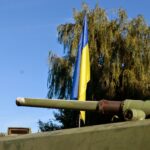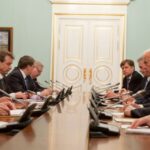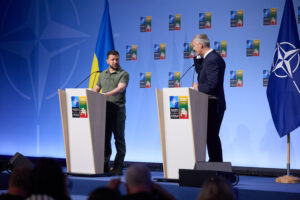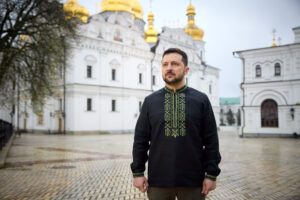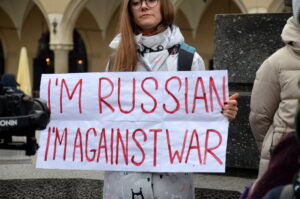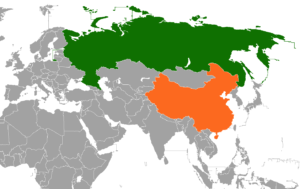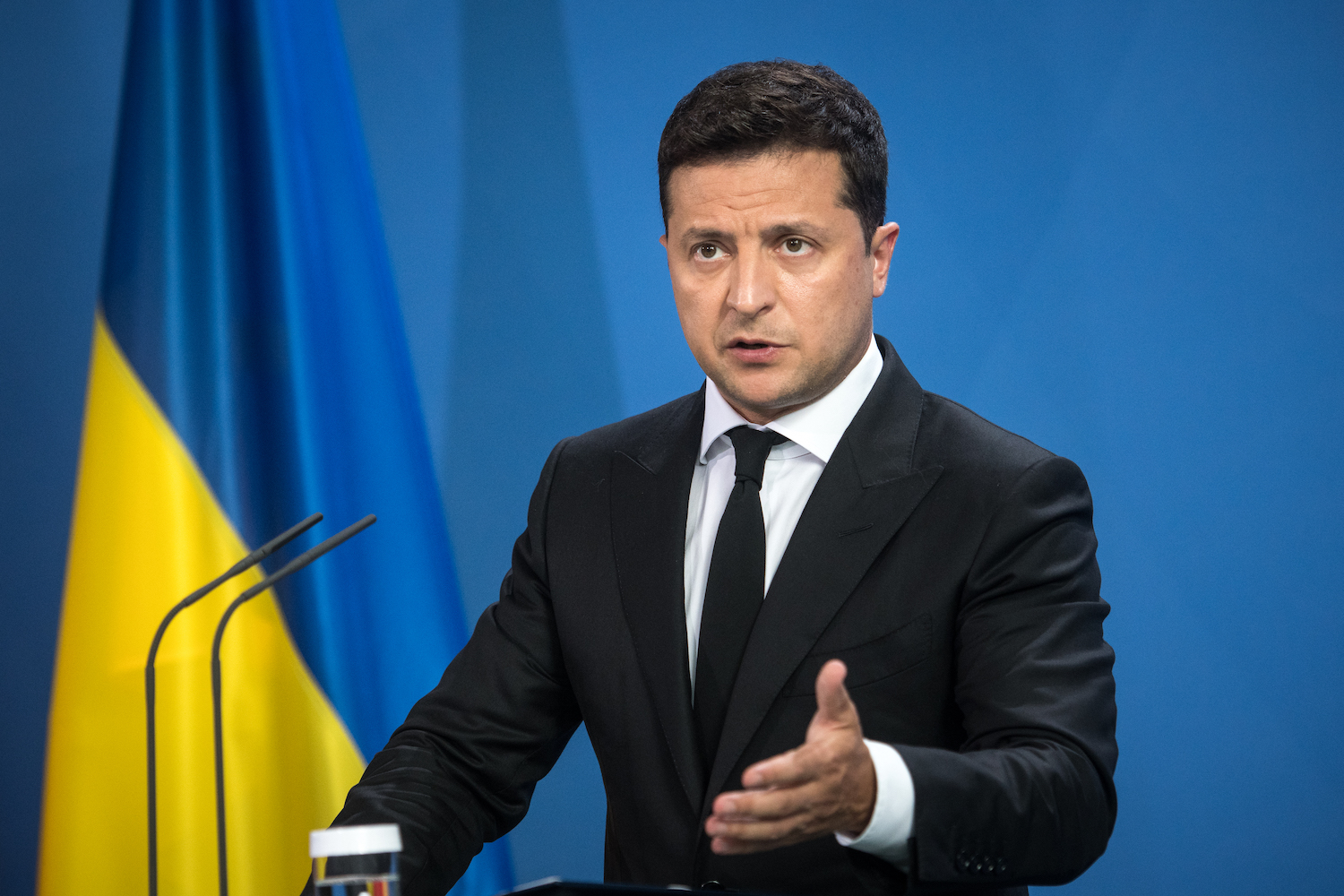
Putin Tells Biden To Get NATO Out Of Ukraine Or Relations Will Rupture
Russian President Vladimir Putin said recently that preventing a Russian invasion of Ukraine will hinge on “unconditional compliance with Russian security demands” regarding NATO’s expansion to the east. He added in his telephone call with Biden, that were America to impose new sanctions on Russia for further invading Ukraine, that would result in a “complete rupture of the relationship” between the two countries. Apart from these consequences, a recent Forbes article also speculated that a Russian invasion of Ukraine could generate a flood of refugees into Europe, a possible destabilization of the EU, and a possible Ukrainian nuclear catastrophe. Officials from Russia and the U.S. are expected to meet in the next few weeks to search for solutions and to head off a potential showdown. In their deliberations these officials would be wise to consider the following arguments.
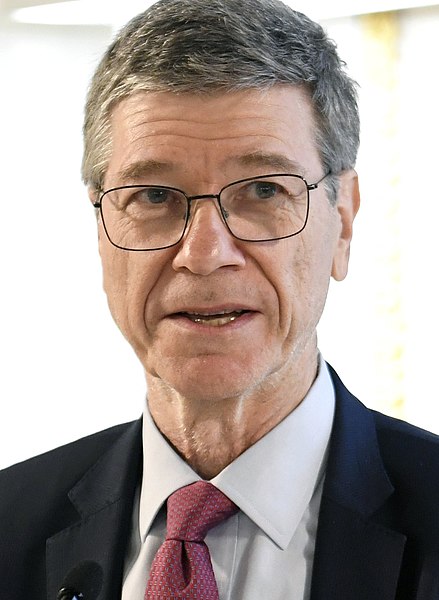
Cold War Thinking
Apart from Putin and his followers, there are some American thought leaders who blame the United States and NATO, and not Russia, for this standoff. As a justification for Russia’s right to keep Ukraine in its orbit, they myopically follow the now discredited theory that Kyivan Rus’ was the precursor of Russia today.
(See my article on this subject recently published on the CEED Blog for more details). Among such leading American scholars and U.S. government advisors are Jeffrey Sachs, Henry Kissinger, and John Mearsheimer.
For example, in his recently published article Avoiding the Worst in Ukraine and Taiwan, Sachs writes, “Consider Ukraine. Although it undoubtedly has the right to sovereignty and safety from a Russian invasion, it does not have the right to undermine Russia’s security in the process.” In this analysis, Sachs argues “NATO should take Ukraine’s membership off the table and Russia should forswear any invasion.” In another essay Sachs states, “My contention is that the pattern of EU and NATO enlargement has created a new and unnecessary economic and security divide in Europe.”
Sachs is advocating for what he believes is a middle ground: a path where Ukraine is able to chart a course independent from each of the EU, NATO and Russia.
Essentially, he wants Russia to be allowed a veto over Ukraine’s foreign policy and for Ukraine to accept a second class of sovereignty – freedom so long as it doesn’t upset Russia’s sphere of influence. This is outdated thinking that should have been retired with the demise of the Soviet Union in the 1990s.
Ukraine is a Sovereign Country
The Final Act of the Helsinki Accords, signed to ensure that the atrocities of the World Wars would not be repeated, guaranteed that European boundaries would not be changed by aggression. What is more, in Budapest in 1994 Ukraine agreed to surrender its nuclear arsenal based on explicit assurances made by Russia, the U.S. and the U.K. (as well as similar supplementary assurances made by France and China). The assurances were that Ukraine’s territorial integrity and political independence would be respected and maintained. At the time Ukraine had the third-largest nuclear arsenal in the world, including 5,000 strategic and tactical nuclear warheads. In accordance with the agreements reached and the assurances given, Ukraine surrendered these weapons to Russia. This is the first time in history that a former nuclear power is now being blackmailed to submit to the whims of the country to which it surrendered its nuclear arsenal for the sake of peace.
Russia is the Belligerent
For 70 years the European continent abided by these nonaggression rules until February 2014, when Russia reneged on its commitments and sent its troops to invade Ukraine, occupying Crimea. Then in March of 2014 Russia further reneged on its commitments and invaded the Donbas region of Ukraine. That border war has continued for seven years to this day and has involved the death of over 13,000 Ukrainians and over 1.5 million internally displaced people in Ukraine. And yet somehow through double talk and a campaign of misinformation, Putin has convinced thought leaders like Sachs and others that the West is the aggressor.
The fact is that NATO has not been moving closer-and-closer to Russia’s border. No East European state has joined NATO since 2004, and NATO has lived up to its commitments in the NATO-Russia Founding Act to refrain from deploying nuclear weapons or stationing substantial combat forces on the territory of new members — despite Russia’s violation of many of its own commitments under the Founding Act. Russia, not NATO, has deployed intermediate-range missiles in Europe, precipitating the collapse of the INF Treaty.
While Putin claims Russia is being threatened from every side, it is Putin who has threatened and invaded other countries including neighboring Georgia, Moldova and Ukraine. It is Putin who has heavily fortified Kaliningrad with nuclear delivery systems and other long-range weaponry including Iskander missiles and S-400s –setting up an offensive military platform in the midst of NATO countries.
It is not in Russia’s interest to stop NATO’s easterly expansion; it is in Putin’s. It is not in Russia’s best interest to block the integration of Eastern European countries including Russia itself into the EU; it is in Putin’s and his fellow oligarch rulers. A democratic Ukraine on Russia’s border threatens Putin’s political stability and Russia’s imperial stature, but not the Russian people. What Putin wants is to stay in power and to retore the Russian empire of years gone by. In short, Putin is not threatened, he is the threat.
Despite Russian, U.S. and U.K. assurances of Ukraine’s territorial integrity and sovereignty in Budapest, Putin is now ignoring those assurances and instead trying to extort security guarantees and commitments that would have the U.S. and NATO abandon their legal assurances to Ukraine. Putin ignores the fact that if Russia had adhered to the Charter of Paris for a New Europe, the Charter for European Security, the Helsinki Final Act, and the Budapest Memorandum, the peace Russia committed to sustaining in those agreements would be the current reality in Europe and there would be no reason to fear for the security of Russia today.
A Modern Proposal
According to Postwar, Tony Judt’s authoritative history of Europe since 1945, at the end of World War II the Allied Nations struggled to settle the political affairs of Europe in a way that would prevent Germany from rearming and again menacing its neighbors in the years ahead. In time the solution that evolved was the economic integration of Germany and France as well as the other countries into what today makes up the European Union. This same thinking needs to be employed to deal with the menace of Russia on Europe’s eastern border. What is needed in Eastern Europe is not a retreat by the EU and NATO but the opposite, namely, to support Eastern European countries like Ukraine in choosing their own fates. If that means they seek to ally with the EU and NATO, so be it. If the West had taken a firmer stance like this when Russia invaded Crimea and the Donbas in 2014, we would not be facing this crisis now. It is time to take this stand now.
Andy J. Semotiuk is a U.S. and Canadian lawyer and a member of the New York and California bars in the U.S. and Ontario and B.C. bars in Canada. A former U.N. Correspondent stationed in New York, Mr. Semotiuk was also a former member of the Canadian Human Rights Commission’s Tribunal Panel. He is currently the President of the Centre for Eastern European Democracy. For more see www.CEEDWEB.ca.
